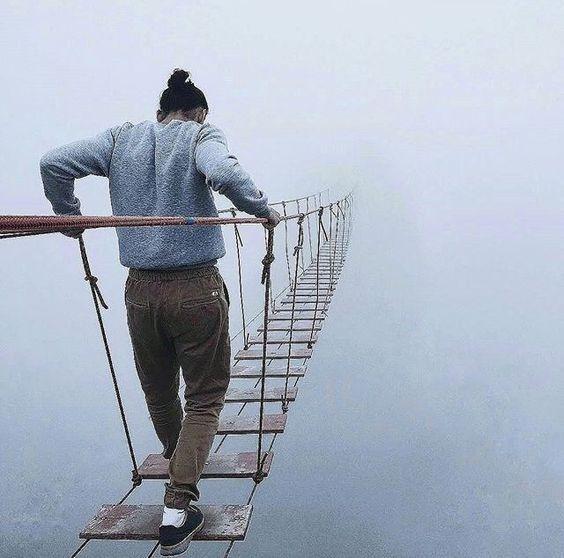Patience means waiting. But waiting doesn't necessarily mean not doing. We all understand the former. And yet, few seem to grasp the latter.
There are times when we need to be still and at peace, take a break, and rest from our work, while simply allowing the world its turn to play a role in our endeavors. Every quest for achievement in the world is a partnership with powers that go beyond our own. And often it takes patience to allow our partner to do the work that we can't do alone. We have a phrase, "Watch and Wait." We've done all we can. We've tossed our little toy boat into the stream. Will it float? We await the results.
Waiting. It's something we might do in repose, on a beach, in a hammock, or utterly relaxed in a comfortable chair. We can wait on a yoga mat, or even while taking a nap.
But waiting does not have to be an utterly passive state. It's not the same thing as being inert, frozen, now helpless, and without options for action. "Waiting" is a verb. And it can connote all sorts of different actions.
Waiting. It's a good time to pray, or play, or otherwise turn away from the focus of activity that has otherwise occupied us. A cook puts a pot on the stove. And then it's the pot's turn to boil. Sometimes, the cook can merely turn away to chat, or check email, or sit and sip coffee while gazing at the garden outside. Waiting can take many forms. And, of course, in some of those forms, the cook can stay quite busy in the kitchen.
Waiting often means preparing.
You've done all that you can do to get the project out there into the potential client's hands. Now, you wait. What does that require? Well, it can mean preparing for the positive go-ahead you hope to receive, and in this way playing a different role in the process, getting yourself ready for the success you want. There will be a next step. So, while you wait, you prepare for whatever is next. Waiting here takes the form of preparation. And at other times, it can mean just turning your attention elsewhere, while allowing the water to heat.
So, in the most general sense, there are two forms of waiting. One does involve resting. But the other involves a different form of doing. Either can help equip you for whatever is to come. But neither will serve you well if it's heavily spiced with hot anxiety. And that, for many people, is the problem.
You're awaiting a decision. It could go either way. Uncertainty mixed with desire produces anxiety. Or you're awaiting a result that's not uncertain, but is not as yet in hand. Anticipation mixed with desire, or the very different aversion of fear, brings another form of anxiety. There are many ways in which waiting is fraught, tense, and hard. But, fortunately, there are two solutions to any such anxiety.
First, you can emotionally release the situation, whatever it is. Shed it. Let it go. Find a zen peace within. Trust God. Or reconcile yourself to the constant vicissitudes of the cosmos, as the stoics did. They believed that hardly anything is as good as it seems or as bad as it seems, so we should all just calm down. They understood that the discipline of waiting is largely the skill of governing our emotions well. But they also understood something else that's vital.
We all have to learn how to turn our attention from what we can't control to what we can control. And that's often facilitated by engaging in some new, and even slightly different, activity that engages our minds and hearts while we wait. Maybe it's in preparation for the result we want, or the one we'd prefer to avoid, or both. At other times, it's another activity altogether, perhaps one that has nothing to do with the focus of our concern. That doing then becomes a useful and happy distraction that can ease the worry, or the anticipation, which otherwise can be so tough. Action can displace agitation. And action can be the form that waiting takes.
If you have trouble waiting for things, analyze what exactly the problem is, and then take the proper action to solve it. For as you see, action can be just what waiting needs.






























